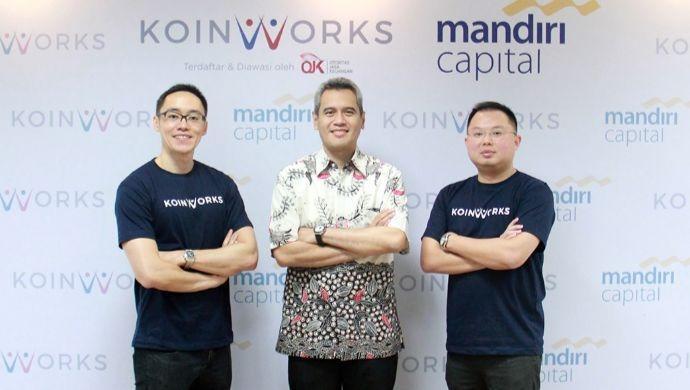Author: Janice
LEAD, an Indian edtech startup, is now a unicorn after $100m Series E fundraise
LEAD is a school-focused edtech company that recently announced that it has raised $100 million in a Series E funding round led by private equity firm WestBridge Capital and GSV Ventures.
This round has valued the company at $1.1 billion, making it the first edtech company to enter the unicorn club in 2022.
This round is its fifth round of institutional funding since 2017.
LEAD plans to use the funds raised to achieve its vision of providing high quality and affordable education to 25 million plus students with an annual revenue run-rate of $1 billion. Its immediate focus is on product and curriculum innovation, growing its footprints and hiring talent across functions.
The company plans to serve students in lower fee schools and expand internationally in similar geographies in the long term.
“A child spends 6 hours in school and only 1 hour in tuitions. Transforming schools, when done right, has massive potential to alter our country’s future. LEAD, with its integrated school system has broken new ground in this direction,” said LEAD co-founders Sumeet Yashpal Mehta and Smita Deorah.
LEAD was founded by Sumeet Yashpal Mehta and SMita Deorah in 2012. It caims to be combining technology, curriculum, and pedagogy into an integrated system of teaching and learning, thus improving student learning outcomes and teacher performance in schools across the country.
LEAD reports that it has seen rapid adoption in the last 4 years and will enter the academic year of 2022-2023 with 5000 schools across 500+ cities in India with an annual revenue run-rate of $80 million. It will serve close to 2 million student.
KoinWorks, an Indonesian digital lending company, raises $108m from MDI, East Ventures
The Covid-19 period has actually allowed KoinWorks to surge forward in the right direction.
“At the beginning of the pandemic, we tried to step back and look into the situation. But we realized that it’s actually a mistake because our market kept growing amid the outbreak,” the company’s co-founder Willy Arifin told Tech in Asia.
The main types of companies that borrow from KoinWords are small and medium enterprises (SMEs) that have digital footprints. Online shops on Tokopedia and Shopee serve as examples. These kinds of companies have not been hit as hard by the restrictions caused by Covid.
In the past 18 months, the number of SMEs that have digital footprints has doubled from around 10 million to 20 million businesses, according to Arifin. This kind of surge normally takes five years if it weren’t for Covid. That being said, KoinWorks has kept its non-performing loan (NPL) ratio under 2%, which is significantly lower than traditional financial institutions.
During the pandemic, the company reached $15 million USD in loan disbursements per month, and logged positive cash flow. The firm also hit 1.5 million users at the end of last year.
The company raised $108 million USD in a series C funding round led by MDI Ventures. which is Telkom Group’s venture arm. Several existing investors such as Quona Capital, Saison Capital, AC Ventures, and Triodos Investment Management also took part in the round.
The investment comprised US$43 million in equity and US$65 million in debt capital. Since its establishment, the company has raised US$70 million in equity and around US$110 million in debt.
The company plans to use the funding to expand its existing workforce of 400 employees, who hail from Singapore, Indonesia, India and Vietnam. It also aims to triple its revenue and double the number of users by the end of 2022.
Founded in 2016 and based in Jakarta, KoinWorks has expanded from being a platform dedicated to peer-to-peer lending to launching several new features to expand its user base. The company realized that it wanted to help more budding founders from the start of their entrepreneurship journey after having to reject many entrepreneurs looking for loans from its lending platform. Hence, they launched a neobank feature that allows users to open business bank accounts directly from its app. It also provided learning material on how to manage an online business, promote it and communicate with customers.
When the company is comfortable with a business’s owner’s transaction history, it gives them a KoinWorks Neo Card which is a Mastercard virtual card that can be used to do any kind of online payments. The SME can also borrow money through KoinWorks’ lending platform.
They have also introduced an earned-wage access (EWA) service called KoinGaji and a gold investment feature called KoinGold.
As of now, the company does have an interest in going public. However, the founders have noted that they still want to focus on the firm’s home market and have no interest in expanding their business to other countries despite having developers from outside Indonesia.
“Half of the GDP (gross domestic product) of Southeast Asian come from Indonesia, we know where the money is,” Arifin stressed.
India’s Mamaearth is the latest unicorn after $52m funding
The parent company of baby and mother care brand Mamaearth, Honasa Consumer Pvt Ltd, has earned the title of unicorn after raising $52m USD in the latest funding round led by Sequoia, valuing it at $1.2b USD. The new funding round saw participation by Belgium-based investment fund Sofina Ventures and the UAE-based India-focused fund Evolvence Capital.
The round also gave its employees an opportunity to monetize their vested employee stock option plans. Honasa Consumer has also issued 839 compulsorily convertible preference shares (CCPS) at an issue price of Rs 33,85,049 to raise the aforesaid amount, according to the company’s latest regulatory filings. The company plans to use the funds to expand its portfolio of personal care D2C (direct-to-consumer) brands, product innovation, distribution and marketing, the company said in a statement on Sunday.
It also recently entered the skincare market with Aqualogica, a hydration-based skincare brand. It also plans to use the funds to grow in the beauty and personal care markets.
Founded in 2016 by Ghazal Alagh and Varun Alagh, Mamaearth offers 100% toxin-free and natural baby care, skincare, and hair care products. It has a product portfolio of more than 120 products and claims to have reached over 5 million customers in 500 Indian cities.
The company reported an annual revenue run rate of Rs 700 crore in the financial year of 2021.
They also recently acquired Momspresso, a woman-focused content platform, and its associated influencer engagement platform Momspressor MyMoney for an undisclosed amount.
Indonesian coffee chain, Kopi Kenangan, achieves unicorn status with $96m pre-IPO round
Indonesian coffee chain Kopi Kenangan has recently closed a $96.1 million Series C funding round from investors including Tybourne Capital Management, Falcon, and B Capital Group.
The round consisted of both primary and secondary transactions. According to industry sources, this Series C round is very likely to be Kopi Kenangan’s last financing before an initial public offering.
The coffee chain raised $50.2 million in primary capital as part of the round, per its filings with Singapore’s Accounting and Corporate Regulatory Authority.
Tybourne Capital that is based in Hong Kong contributed $20.7 million, while Falcon Edge invested $16.6 million. The rest of the funding came from Kunlun Group, B Capital and British Virgin Island-registered Kostal Investments and Bravo Castle.
Investors bought the startup’s preference shares at $3858.56 apiece. Based on its fully diluted capitalization, including its employee share option plan, the coffee chain is now valued at $1 billion and considered a unicorn.
The Series C investors also bought shares worth $45.9 million from existing shareholders as part of the round. Sellers include co-founder Edward Tirtanata, Cynthia Chaerunnisa, James Pranant0, and early investor Alpha JWC Ventures.
Tirtana who is the company’s CEO, got nearly $5 million from the secondaries, while chief development officer Prananto got $6 million. Chaerunnisa who is their chief marketing officer earned $12 million. Venture capital firm Alpha JWC received almost $23 million for paring its stake in Kopi Kenangan.
In November, DealStreetAsia reported the company’s plans to raise about $100 million in a Series C round backed by Falcon Edge at a near unicorn valuation.
Kopi Kenangan was launched in 2017 by Tirtanata and Prananto and currently operates over 560 coffee outlets in 32 cities across Indonesia. The company plans to expand to Thailand, the Philippines and Malaysia.
They have also branched out into other ventures, owning Chigo fried chicken, Cerita Roti bread and Kenangan Manis cookie chains. It also operate the Rumah Kenangan eatery and Kenangan Heritage, a premium coffee shop.
Kopi Kenangan launched its food delivery app in 2019 and claim to have more than 1.8 million monthly active users. The company reported a revenue of $22.08 million and a profit of $130,000 in 2019.
There have been rumours of a potential listing in Hong Kong, an exchange that has reportedly been attracting attention from several Chinese tea brands, including ChaBaiDao, Gu Ming, Heytea and Lelecha, after bubble tea chain Nayuki Holdings’ $654 million IPO in June.
Due to some amendments to the rules for the Indonesia Stock Exchange that aims to attract local startups, Kopi Kenangan might also consider their home market as a potential listing destination.
Superapp Grab to buy Malaysian supermarket chain Jaya Grocer
Grab, a Southeast Asian tech giant, is buying Malaysian grocery chain, Jaya Grocer, saying this in its latest filing with the Securities Exchange Commission (SEC).
In the filing, Grab said that it has entered into a share purchase agreement with the Malaysian firm to acquire all its ordinary shares and 75% of the preference shares. They will also have the option to buy the remaining 25% preference shares of Jaya Grocer after the transaction.
While the financial terms of the deal were not disclosed, The Edge Malaysia estimated the deal to be between RM1.5 billion to RM1.8 billion ($350 million to $430 million), citing sources.
Grab intends to partner with a local investor, which will own 50% of the voting shares in Jaya Grocer. But no further details were disclosed on who this local investor will be.
Jaya Grocer has 40 stores across Peninsular Malaysia, with a large majority being located in the Klang Valley near the capital city, Kuala Lumpur.
The acquisition is expected to close in the first quarter of 2022 if customary conditions are met. Jaya Grocer will become a Grab subsidiary and their financial results will be consolidated by Grab.
Found in Malaysia and headquartered in Singapore, Grab went public on the Nasdaq earlier this month following its record $40-billion merger with special purpose acquisition company Altimeter Growth Corp. This listing gave them $4.5billion in cash proceeds. Grab runs e-grocery, e-hailing and food delivery services along with other features on its app. They also applied for a digital banking license in Malaysia through its joint venture with Singtel. The country’s central bank is expected to issue five licenses in the first quarter of 2022.
This deal came about three weeks after ASEAN Industrial Growth Fund (AIGF), a Southeast Asia-focused private equity sponsored by Japanese conglomerate Mitsubishi Corporation, sold its stakes in the Malaysia retailer back to the company’s founding Teng family.
AIGF has invested in Jaya Grocer in 2016, for a price of RM300 million. Founded in 2007, it grew from over 10 stores when AIGF first invested, to more than 40 stores nationwide currently.
While financial details of the deal were not disclosed, AIGF partner Daniel Yong said in a statement that the sale allowed the firm to “realize significant value” for its investors.





